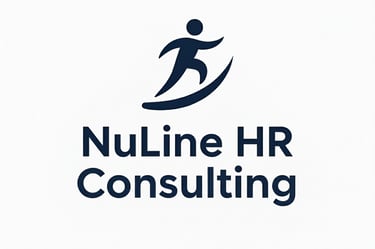Management of Discipline in Industry : Building Fairness and Productivity
INDUSTRIAL RELATIONS
A.Surendranath, Sr HR & IR Professionals
9/27/20253 min read


In Indian industry, discipline management is not just a matter of law but also a foundation for productivity, harmony, and sustainable growth. Unfortunately, in many workplaces, disciplinary actions are often seen as personalised, inconsistent, or biased. Sometimes, certain employees or groups receive special treatment, while others face strict action for the same misconduct. In some cases, registered trade unions are ignored or sidelined, and preference is given to informal groups claiming loyalty to the employer.
This imbalance leads to frustration, mistrust, and workplace conflicts. For Indian employers, the challenge is clear: discipline must be managed in a transparent and unbiased manner so that it contributes to industrial peace and long-term business success.
Why Discipline Management Matters
Every organisation, large or small, runs on a framework of rules — covering attendance, punctuality, behaviour, safety, and performance. When these rules are not applied consistently, the impact is felt across the enterprise:
• Productivity suffers when rules are not respected.
• Committed employees lose motivation when they see others escape responsibility.
• Industrial peace gets disturbed, leading to disputes, strikes, or legal cases.
The organisation’s reputation suffers in the eyes of customers, investors, and society.
In the Indian context, where many industries face resource constraints and competitive pressures, effective discipline management is not just desirable — it is essential.
Challenges Seen in Practice
1. Personalised Treatment
In many organisations, disciplinary action depends on personal relationships. Some employees may be spared despite repeated violations, while others face strict action for minor issues. This inconsistency erodes credibility.
2. Over-reliance on Informal Groups
Employers sometimes depend on informal “loyal” groups to manage worker relations. These groups may be shielded even when they break rules, which creates resentment among others.
3. Avoidance of Registered Trade Unions
Trade unions, being legally recognised, cannot be ignored. However, in several cases, employers prefer to bypass unions and engage only with informal groups. This practice often escalates disputes and invites intervention by labour authorities.
4. Lack of Clear Procedures
Many organisations, especially smaller ones, do not have standing orders, service rules, or documented procedures. Even where policies exist, there may be a lack of trained personnel to handle enquiries, issue notices, or conduct hearings. This results in disciplinary action being arbitrary rather than systematic.
The Right Approach for Employers
To build a culture of fairness and transparency, employers need to view discipline management not as a tool of control but as a system of organisational governance. A few essential practices are:
1. Treat Discipline as a System, Not a Weapon
Rules must apply equally to all employees, whether permanent, temporary, or contractual. Selective application reduces respect for the system.
2. Respect Legal Frameworks
Disciplinary actions must align with Indian labour laws such as the Industrial Disputes Act and the Standing Orders Act. Registered unions should be engaged constructively and treated as legitimate representatives of workers.
3. Ensure Consistency and Transparency
Disciplinary decisions must be reasoned, well-documented, and communicated clearly. When employees see fairness, they are more likely to accept even strict action.
4. Keep Professionalism Above Personal Relations
Familiarity or closeness with individual employees should not influence decisions. Uniform application of rules is key to maintaining trust across the workforce.
5. Strengthen Capability
Employers should invest in training supervisors and managers in labour law, disciplinary procedures, and conflict resolution. Where required, professional HR or IR consultants can provide expertise and ensure compliance.
Benefits of a Fair Discipline System
Employers who adopt transparent and unbiased systems of discipline enjoy multiple benefits:
• Industrial Peace: Reduced disputes and greater cooperation.
• Higher Productivity: Workers focus on tasks rather than politics.
• Positive Reputation: The organisation is seen as a fair employer, helping attract and retain good talent.
• Legal Safety: Documented procedures protect against adverse judgments.
• Employee Morale: Workers develop respect for the organisation when fairness is consistently demonstrated.
Discipline as a Strategic Tool
Discipline management, when handled with fairness and transparency, goes beyond controlling misconduct. It becomes a strategic tool that enhances trust, strengthens teamwork, and drives productivity.
For Indian industry, the need of the hour is not selective action or bias in favour of certain groups, but a uniform system that applies to all. When employees know that rules are fair and consistently applied, even trade unions will cooperate, because justice and stability benefit everyone.
Discipline, therefore, should not be seen as a burden or a confrontation point. It should be viewed as an enabler of industrial harmony and business growth in a competitive India.
Towards a Strategic Disciplinary Management Policy
Every employer in India, whether large or small, can benefit from adopting a strategic disciplinary management policy. Such a policy should clearly lay down rules of conduct, procedures for dealing with misconduct, and the principles of natural justice to be followed at every stage. It must ensure that action is not just legally correct but also perceived as fair by employees. A strategic approach links discipline with productivity, safety, and employee morale, rather than treating it as a narrow compliance exercise. When discipline is integrated into organisational policy in this manner, it promotes stability, strengthens employer–employee relations, and supports long-term business success.
Disclaimer: This article is for educational and informational purposes only. For specific cases, professional HR consultation should be sought.
NulIneHR Consulting #198, Spaclance, Suite #1175, Second Floor, CMH Road, Indiaranagar Second Stage, Bengaluru-560138, India. E-Mail: hello@nulinehr.com; GSTIN: APWPS3818K1ZV


